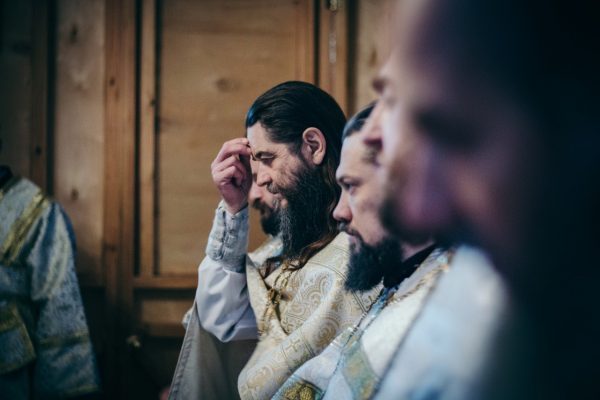Priests are not psychologists. Since the beginning of the 20th century people have been trying to turn us into psychologists. Even the seminaries have danced to the tune by enforcing clinical pastoral education, which is a semester under supervision as a visitor in a hospital, hospice, mental institution, or the like. But we are not psychologists.
We’re not social ministry experts. This, too, has become part of the baggage of ministry since the Fifties, when there was a great push to “engage the culture,” “enter the mainstream,” “celebrate the secular city,” blah blah. In other words, give up what is unique about ministry and become a social activist. Nothing wrong with being a social activist, but here again: social activism is not at the core of our calling.
Oh yes and we are not administrators. Some of us have a natural gift for administration, others are simply terrible about it. But we are not running a corporation; we are not CEOs, far less are we CFOs. The church is not an institution and we are not professionals.
My favorite definition of priesthood came from Fr Alexander Schmemann of blessed memory, who said that the calling of the priest is to have no calling in order to assist others to discern their calling to ministry in their ordinary occupations and social connections.
So, how do we do this? We lift up the creation into the presence of God, and we offer God into the midst of the creation. We do this week in, week out, through the divine liturgy. Here bread and wine, materials that have been altered from their natural state through manufacturing, are transformed into the divine presence. We call it the body and blood of Christ, but don’t get hung up on this. We are not cannibals, as some of the early writers against Christianity held. The point here is transformation: the created order, the created world, is first transformed through human labor. Then, secondly, it is transformed in the action of the people of God (the meaning of the word “liturgy”) into the Divine Presence. Perhaps more succinctly, we recognize (re-cognize means “to know again” something that we lost) the presence of God in all creation, a recognition to which we have become insensitive. The task of the priest is to remind us of this Presence in so many different ways, but chiefly through the Divine Liturgy on Sundays and Holy Days.
You may say that this is no task at all, that it is really nothing much, and I could agree with you. In a world which has lost the very understanding of God, let alone the awareness of the Presence of God, this amounts to “not much” because the truthfulness and the reality of it are rejected outright. Yet we labor on, despite our irrelevance.
Priests don’t have any gimmicks. We leave the gimmicks up to the relevant people who constantly try to re-invent Christianity in every generation. This generation tries with praise music, auditoriums rather than churches, stripped of symbols or images to challenge and engage the mind. Priests aren’t “worship leaders.” Priests say things like “lift up your hearts” every Sunday and we mean it. Lift them up into the presence of God even as God condescends to enter our present moment. We say things like “this bread is the precious body of your Christ,” and we mean it. The created and manufactured goods of our lives are transformed into the present experience of God. And we mean it. We do this week in week out no matter whether anyone believes it – including sometimes, ourselves – because this is the heart of the faith, this is the bedrock.

















